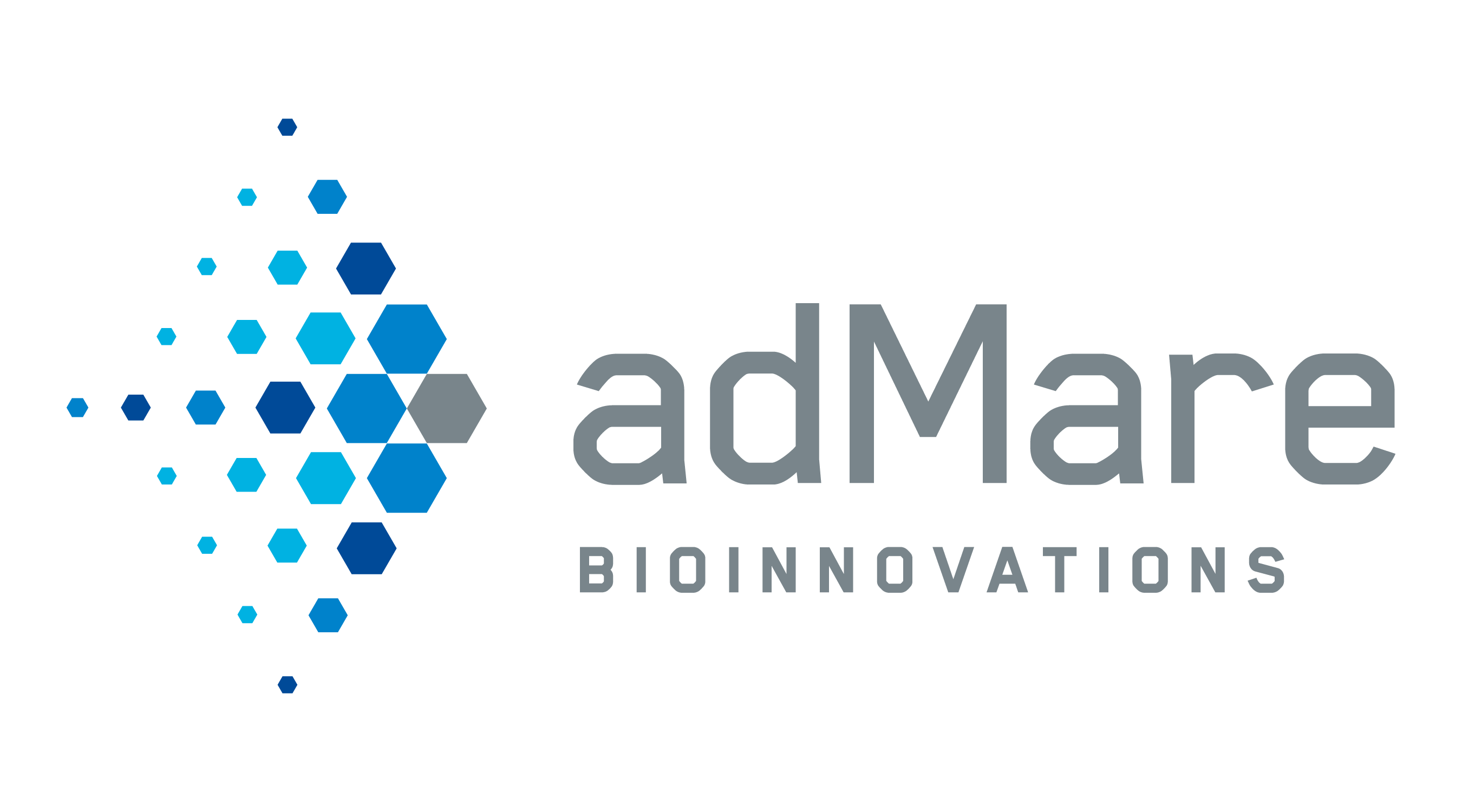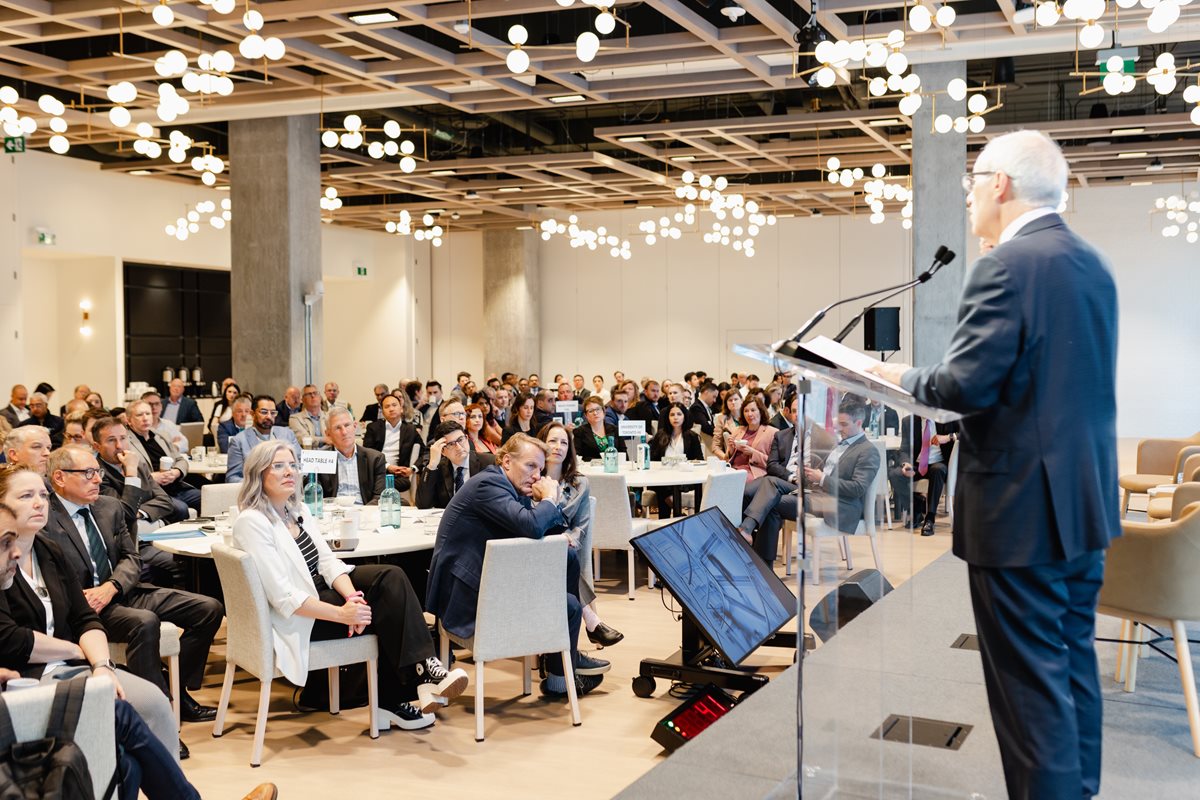
As part of our ongoing Life Sciences breakfast series, we hosted a discussion focused on attracting capital investment and anchor companies. The event drew a packed house of industry leaders, investors, and policymakers eager to tackle the sector's most pressing challenges.
The Board’s President and CEO, Giles Gherson opened with a compelling vision for the future of Toronto's life sciences industry. Emphasizing the need for a denser, more robust industry cluster, Gherson highlighted the critical role of anchor companies in driving innovation and growth, “To grow our region’s life sciences sector into the larger-scale, denser industry cluster we know it can be, we must understand the structural dynamics and the key building blocks—specifically the role of anchor companies and their catalytic impact."
Drawing parallels to the success of Ontario's automotive sector, Gherson underscored how anchor companies can create a thriving ecosystem. "The presence of top-tier firms like Stellantis, Ford, GM, Toyota, and Honda has spawned a vast ecosystem of suppliers and innovators. We need a similar model in life sciences."
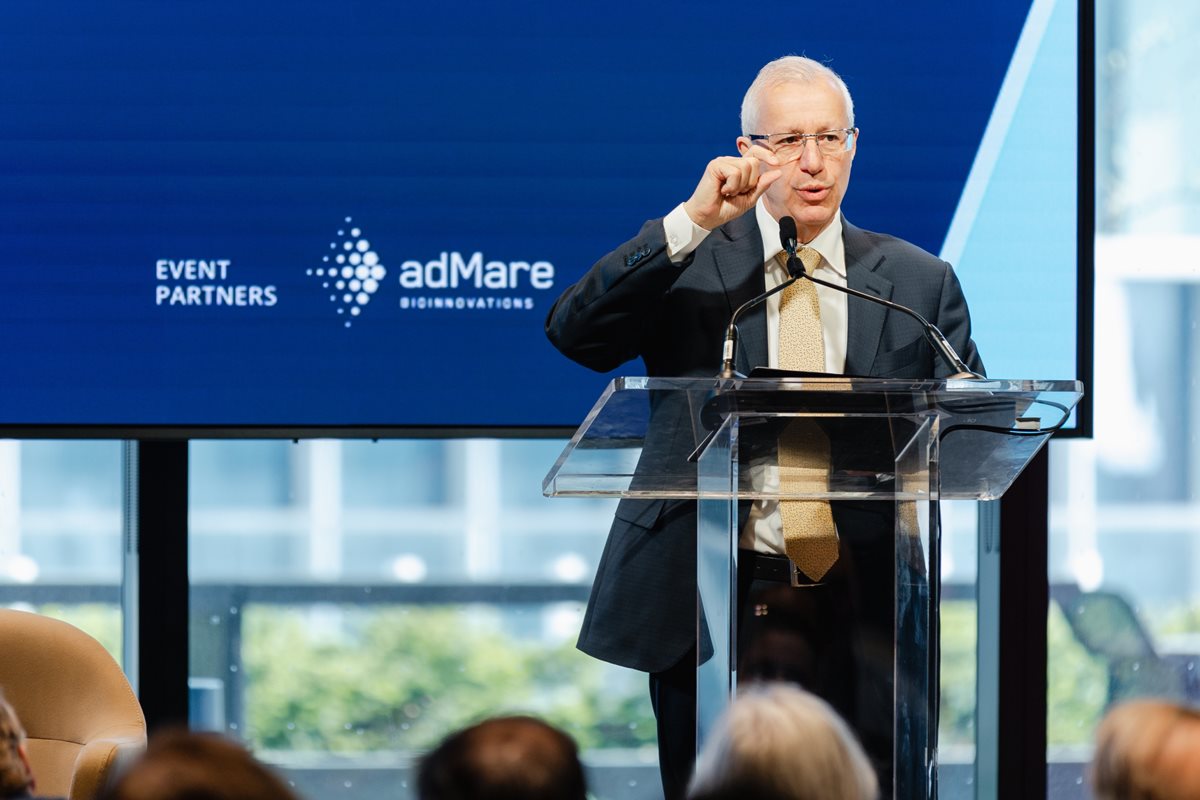
Vic Fedeli Reflects on the Past and Looks to the Future
Ontario's Minister of Economic Development, Job Creation and Trade, the Hon. Vic Fedeli highlighted Ontario’s rich history and ongoing contributions to life sciences,
"Ontario is a life sciences superpower. We have a long history of cutting-edge innovation and discovery. We discovered insulin here, developed the first cardiac pacemaker, detected the gene that causes cystic fibrosis, and use stem cells to cure diseases," Minister Fedeli stated. "We want to ensure Ontario remains at the forefront of life sciences innovation and continues to be a global leader in the sector."
Fedeli emphasized the duty to build on Ontario’s life sciences legacy by highlighting the province’s strategy for the sector, Taking Life Sciences to the Next Level.
"Over the last four years, we have transformed Ontario’s auto sector. Now, we are going to take the successes we’ve had in the advanced manufacturing sector and pivot hard to life sciences," Minister Fedeli said. "Our new strategy includes growing employment in the sector to 85,000 workers. We want to double the venture capital investment in the life sciences sector to $725 million dollars a year by 2030. Those are lofty goals, and we fully intend to meet each of them."
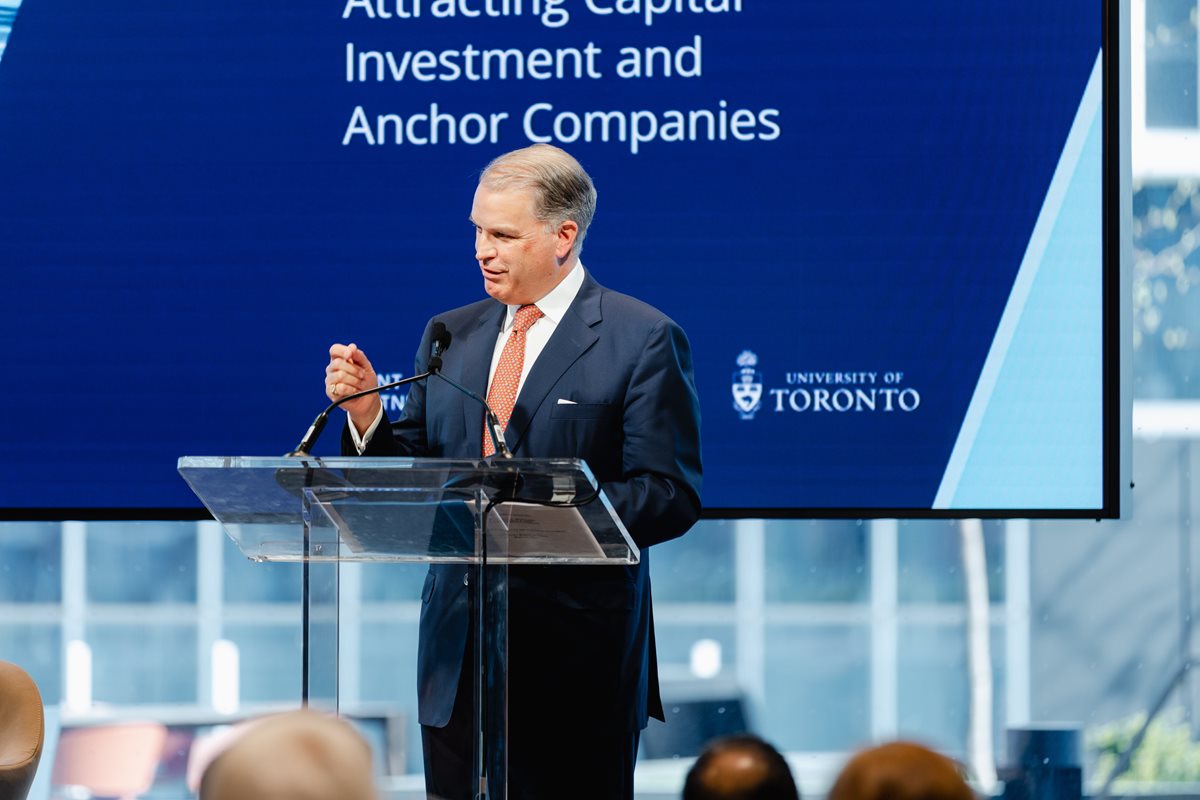
Gordon McCauley Calls for Anchor Companies
Gordon McCauley, President and CEO of adMare BioInnovations, made an impassioned plea for anchor companies within Canada’s life sciences ecosystem. McCauley has long advocated for the establishment and growth of homegrown anchor companies to drive sector-wide success.
"It is objectively clear that Ontario and Canada have what it takes to build sustainable, durable clusters. We are a leader in scientific research. This is not hubris; it's a fact. Canada punches well above its weight in scientific innovation," McCauley asserted.
However, McCauley pointed out a significant gap: "Canada is the only advanced pharma market in the world without a research-based domestic anchor company. Everything we care about in economic terms is better in the presence of an anchor company: talent attraction, talent mobility, capital attraction, capital formation, knowledge translation from universities to successful companies, and knowledge commercialization."
McCauley stressed the need for strategic actions to foster the growth of such companies. "Our report tells us one thing you can’t do: advocate for an act to protect anchor companies. They are creatures of market forces, so if you seek to protect them, you only weaken them. Rather, the key is to keep building companies that think like anchor companies."
McCauley’s vision is clear: "We need to create an environment where anchor companies can emerge and thrive, ensuring long-term sustainability and global competitiveness for Canada’s life sciences sector."
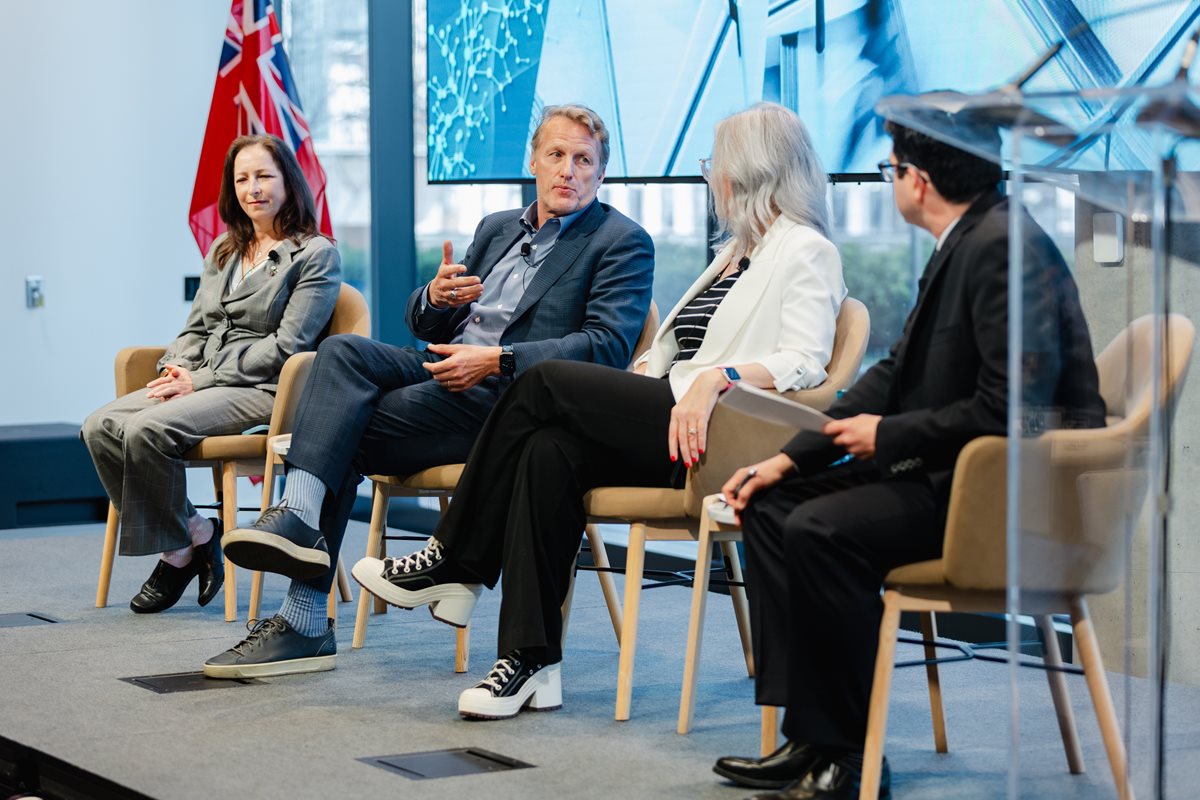
Panel Discussion Offers Insights and Solutions
The event also featured a panel discussion moderated by Sean Silcoff, Technology Reporter for the Globe and Mail. Silcoff set the stage with a pointed observation about the state of Canadian innovation.
"In the MaRS building, there’s a display case that reads Insulin, Canada’s gift to the world. I can’t stand that. It should read: Canada’s gift to the economies of the United States and Denmark. A hundred years after the greatest medical discovery on Canadian soil, the world’s two most valuable drug giants have core franchises built around insulin in treatments for conditions related to diabetes and obesity. Meanwhile, Canada has zero giant homegrown drug companies."
Silcoff then posed a critical question to the panel: "What do we need to help the life sciences sector grow?"
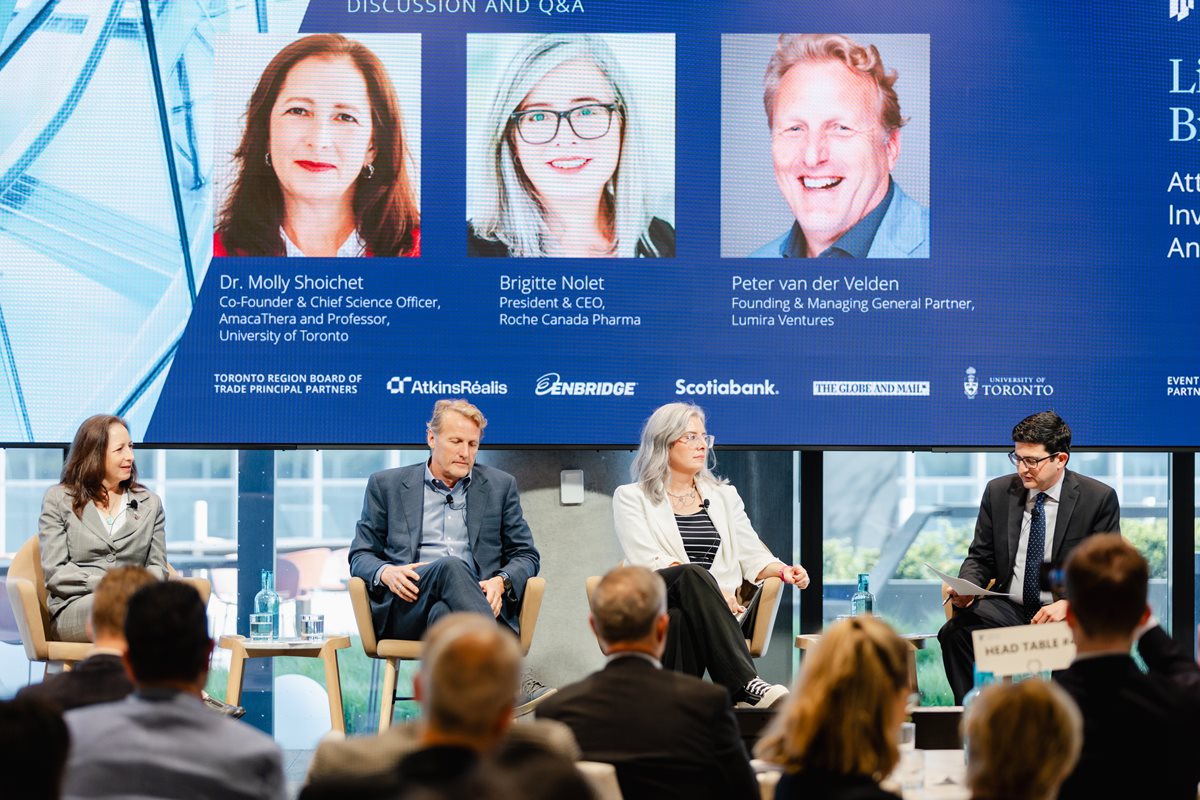
Brigitte Nolet, President and CEO, Roche Canada Pharma: "We need an element of predictability, stability, and understanding how we can grow this sector. I think one of the things we're really doing well now is partnering together and understanding that each of us has a role to play. This is not going to happen with one anchor company or two small biotechs. It’s going to happen because we have venture capitalists coming together with university researchers and multinationals to create an ecosystem that rises all together. One of the biggest things we look to, especially when we recognize science is global, not national, is how we make sure science can come to and flourish in Canada. We have to want this, and if we want it, we need to put the conditions in place."
Peter van der Velden, Founding and Managing General Partner, Lumira Ventures: "You need really smart government policy. There’s policy and there’s smart policy. It’s important to think about that. Smart policy engages capital ecosystems, so that the government makes money, creates jobs, and supports innovation. We need infrastructure, labs, wet space, and manufacturing capacity. We need recognition that we can’t succeed by building plants only. The COVID story wasn’t about supply chain or manufacturing, it was about mRNA technology. That’s what gave us the vaccine. It was researchers and innovators and the capital that went into those businesses. You must have a long-term vision. You have to have sustained and engaged capital."
Dr. Molly Shoichet, Co-Founder & Chief Science Officer, AmacaThera and Professor, University of Toronto: "I’m very proud to be Canadian, and we’re always so glad to be punching above our weight. But, are we really punching above? What could we actually do if we invested more in Canadians, give us the tools to really punch above our weight. I think we need to stop being so proud of punching above our weight, because we really aren’t."
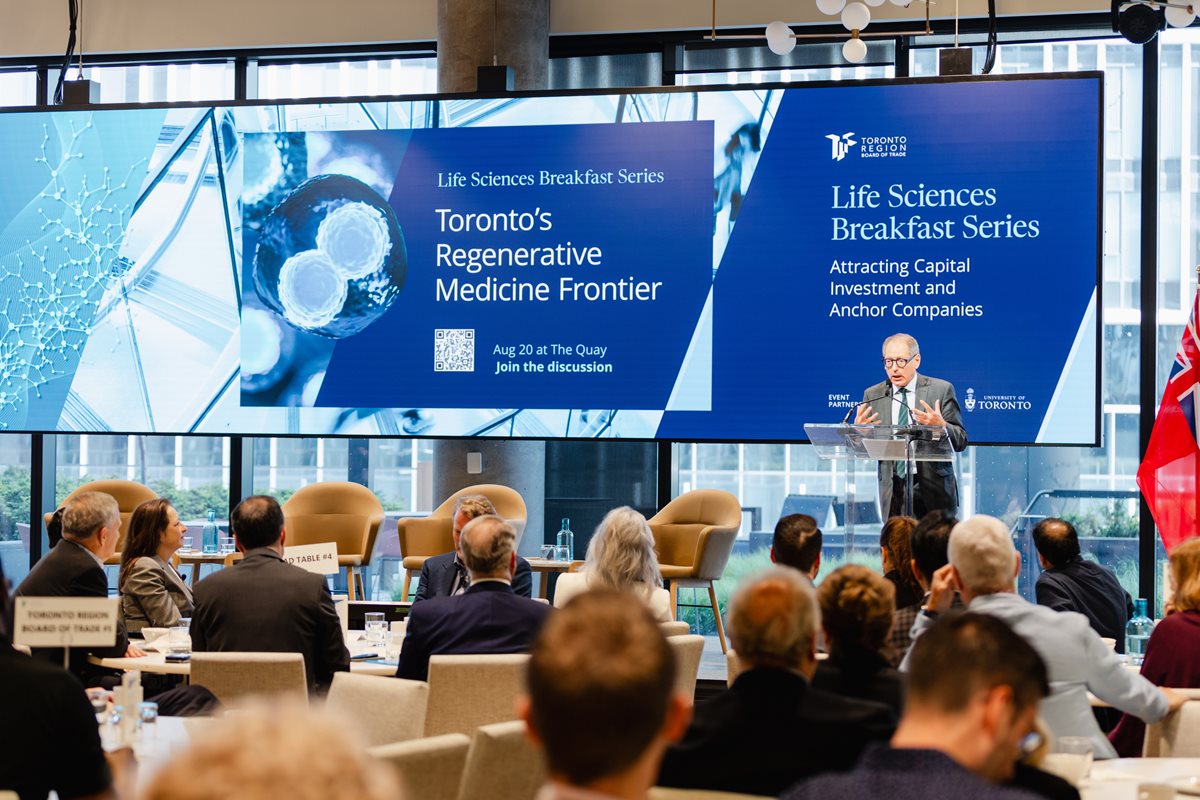
The Conversation Continues
Gherson's closing remarks underscored the importance of the insights shared during this breakfast event. "The collaboration, strategic investment, and smart policy discussed today are crucial for advancing our life sciences sector," he noted. "With continued efforts, Toronto is poised to become a leading global hub in life sciences."
Looking ahead, our Life Sciences Breakfast Series continues in August as we delve into Toronto's leadership in regenerative medicine. This event will bring together key players to explore how we can collectively drive innovation, improve patient outcomes, and solidify Toronto's global competitive position in the emerging field focused on replacing, repairing, or regenerating human cells, tissues, and organs.

Life Sciences Breakfast Series: Toronto's Regenerative Medicine Frontier
Thank you to our event partners.
